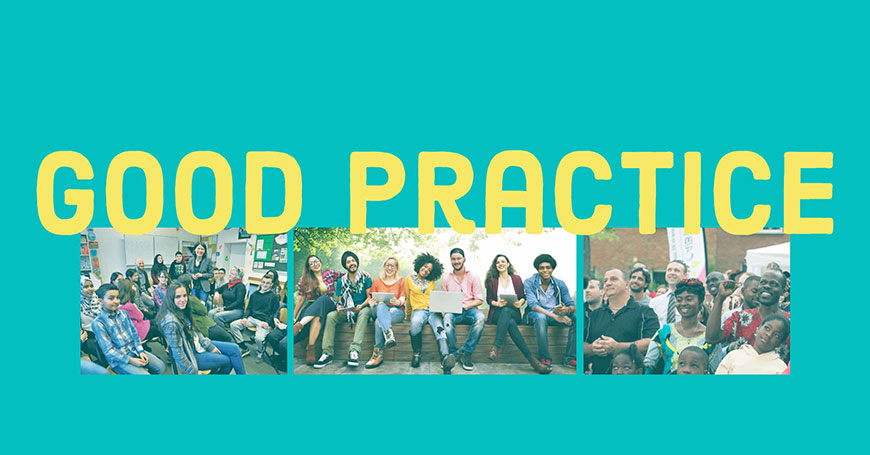Intercultural cities: good practice examples

The first step is the adoption (and implementation) of strategies that facilitate positive intercultural encounters and exchanges, and promote equal and active participation of residents and communities in the development of the city, thus responding to the needs of a diverse population. The Intercultural integration policy model is based on extensive research evidence, on a range of international legal instruments, and on the collective input of the cities member of the Intercultural Cities programme that share their good practice examples on how to better manage diversity, address possible conflicts, and benefit from the diversity advantage.
This section offers examples of intercultural approaches that facilitate the development and implementation of intercultural strategies.
Employment opportunities as a factor of cohesion
Purpose: Employment supporting cohesion Stimulus/Rationale: Process: In Manchester (United Kingdom), the Manchester International Festival’s Factory Academy partnered with the construction firm...
The Inclusive Anchors Network
In Leeds (United Kingdom), a group of the thirteen largest (primarily) public sector employers, including the city council, local universities and Yorkshire Water, have formed the Inclusive Anchors...
Cultural projects reflecting and promoting the diversity of Camden’s communities
Culture is at the centre of Camden Council’s work. It aims to deliver inspiring arts projects on Camden’s estates and neighbourhoods that are co-created, engage with the most disadvantaged...


